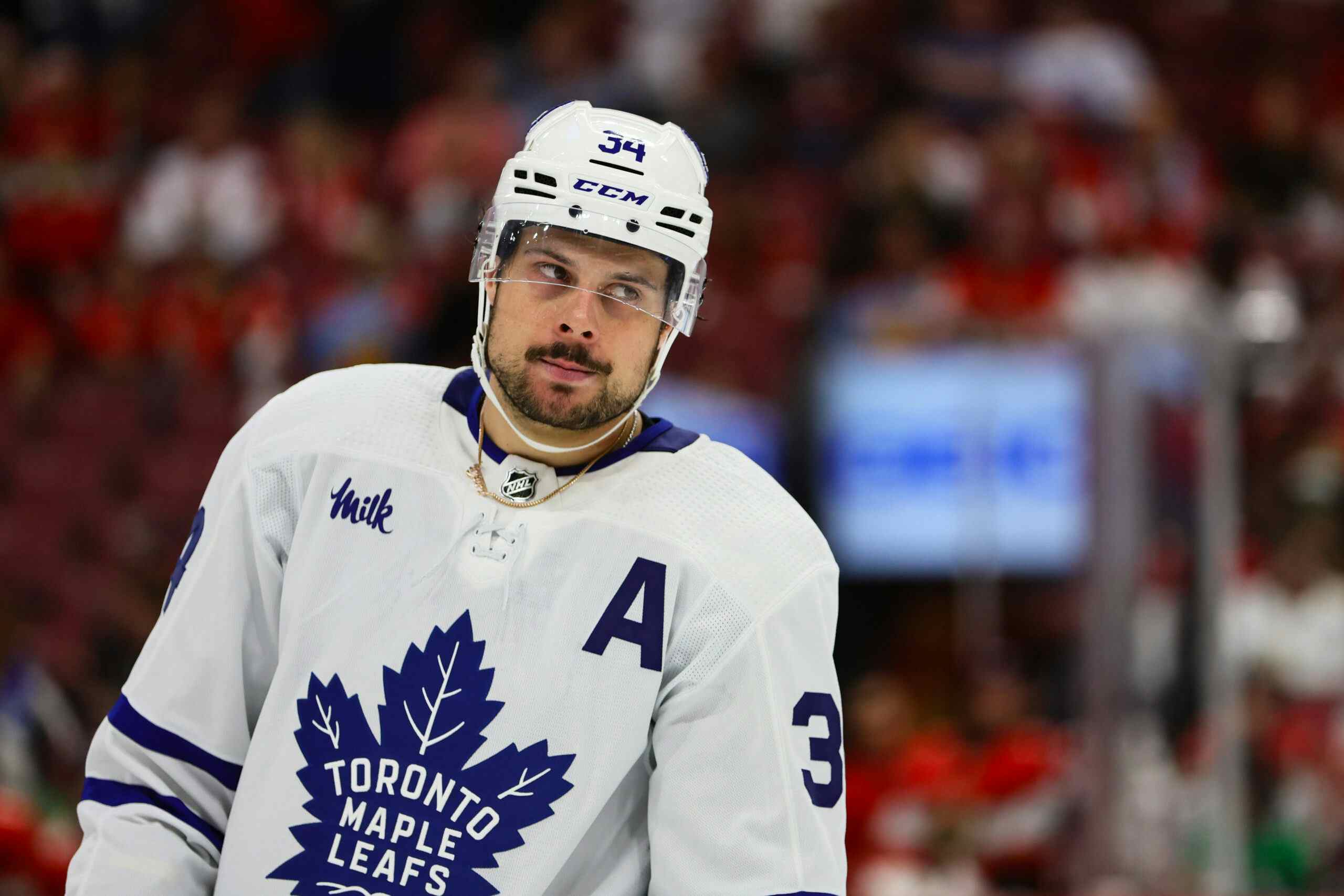Auston Matthews’ 5-year contract leaves a lot to be desired

After what seemed like years of speculation, we finally know what Auston Matthews RFA contract will look like and… well… it’s not a great deal for the Leafs.
*ducks several tomatoes and a shoe*
Who throws a shoe? Honestly. Anyway, if you happened to be living under a rock for the passed 24 hours, the Leafs have just signed Auston Matthews to a 5 year contract for an AAV of $11.63MM. No matter how you split it, that’s a lot of money and not that much term and I don’t think many people would honestly say that was their ideal contract.
Now, before I get into why I think the Leafs didn’t do that well in this negotiation, I want to acknowledge a very legitimate alternative point of view. Barring any unforeseen circumstances, I expect Auston Matthews to be worth every penny of his new $11.63MM contract. For some people, that may be more than enough to make you happy with the deal. You may be thinking: “Wow. A great player is going to be on my team for 5 more years. That’s great!”. If this is you, I congratulate you on being more well adjusted than I am. On the other hand, if you’re a cynical jerk like me, I invite you to follow me down this dark path of contract comparables and cap percentages.
Comparable Players:
Before we can determine whether Matthews’ contract was in line with the market, we have to establish what that market is. The main point of contention between those who like this deal and those who don’t mostly depends on which players you consider to be most comparable to Matthews. For simplicity, I’ve split the main comparables into two groups: the kids, and the vets.
The kids:
Connor McDavid and Jack Eichel. It’s easy to draw comparisons between Matthews, McDavid, and Eichel. They were drafted with the top picks in two consecutive draft years, they play the same position, and they are all franchise caliber players at a very young age. Here is a contract breakdown for these three players:
Matthews:
- AAV: $11.63MM
- Term: 5 years
- Percentage of cap when signed: 14.63%
McDavid:
- AAV: $12.5MM
- Term: 8 years
- Percentage of cap when signed: 16.67%
Eichel:
- AAV: $10MM
- Term: 8 years
- Percentage of cap when signed: 13.33%
Since Eichel and McDavid signed, it has been widely speculated that Matthews’ contract would land somewhere between their two cap percentages (Matthews being better than Eichel and worse than McDavid). However, as we began getting more information about the contract talks and hearing higher AAVs and lower term, people started to look for other possible RFA comparables who signed short term deals as RFAs. I have listed the two most common of these comparables below.
The vets:
Crosby and Malkin. These two stars signed short term deals as RFAs with cap percentages above Matthews. Here is a contract breakdown for these two players:
Crosby:
- AAV: $8.7MM
- Term: 5 years
- Percentage of cap when signed: 17.3%
Malkin:
- AAV: $8.7MM
- Term: 5 years
- Percentage of cap when signed: 15.34%
If you put a lot of stock in “the vets” as the best comparables, it makes perfect sense why you would see Matthews’ deal as reasonable. Matthews signed for the same term at a smaller cap %. However, I firmly believe that “the kids” are the better comps.
Crosby and Malkin signed their contracts a decade before Matthews under a completely different CBA. Ignoring comps from 2 years ago in favour of comps from 10 years ago seems a lot like cherry picking data points to me. By the same logic, if the Leafs could point to Crosby’s second contract as a comparable where he gave up 12 UFA years for 13.53% of the cap. I can’t imagine Matthews’ agent would be aligned if Dubas proposed an equivalent max term deal at a $10.75MM AAV.
There is simply too much time and too many market changes between these deals to be comparing apples to apples. McDavid and Eichel are the only Matthews caliber players to sign RFA deals under the current CBA. They are the best comparables we are going to find. This has been clear since the pair signed their deals. The real question is how to adjust the cap percentage for the reduced term.
Cap percentage and other things that give me a headache:
When negotiating player salaries, GMs/agents often use cap % as a metric to determine how much a player should make based on market comparables. This is because the salary cap has historically increased every year. A player who signs today will be giving up the ability to negotiate a raise in years where the cap is higher. In other words, a player that signs a deal today will be able to negotiate a raise a year earlier than a player who signs next year (if term is equal). The second player recoups some of the money from foregoing a future raise in the last year of his deal and mitigates some of the risk of the cap increasing significantly in the future.
For argument sake, let’s say Matthews is exactly in between Eichel and McDavid in value. Applying this logic, that would put Matthews’ cap percentage at 15% on an 8 year deal. This equates to an AAV of $11.93MM. This is what I would consider the “expected AAV” for Matthews on an 8 year deal. However, as we know, Matthews only signed for 5 years (at $300K less than this “expected AAV”). He took on less risk of cap increases than McDavid and Eichel did by locking in his AAV for 3 less years. He also gained the ability to negotiate a raise two years before his comparables. I think we’d all agree that this should come at the cost of some of his cap % but the question is, how much? And, more importantly, was the $300K “discount” Matthews took enough to make it worth the loss in term for the Leafs?
If we agree that 15% is the right cap percentage for Matthews on an 8 year deal, one approach to accounting for the difference in term is to apply this percentage to the salary cap value from 2 years before McDavid/Eichel signed ($71.4MM); basically pretending Matthews signed an 8 year deal that ends two years before McDavid and Eichel’s deals. This would put Matthews’ AAV at $10.71MM; just under a million less than what he signed for.
If you feel this is too much of a stretch, a simpler way of looking at it is to say that Matthews gave up ~$1.5MM (vs. expected AAV) over the course of the 5 years of his deal. Barring injury, he could easily eclipse that “loss” with the gains from hitting UFA 2 years before his comparables. Of course, you can nitpick about whether $11.93MM is actually a reasonable expectation for an 8 year deal with Matthews but that would mean claiming Matthews is essentially on par with McDavid in value. Basically, unless you think Matthews and McDavid are equals, Matthews made out very well on this deal.
Other considerations:
Offersheets: A lot has been made of the risk of offersheets and how they affected Dubas’ leverage in contract negotiation. While I agree this was a major factor in pushing Matthews’ AAV up, I don’t think it’s fair to use this as justification for the inflated salary. Had McDavid and Eichel made it to July 1, offersheets would have been just as likely for them as they would be for Matthews. Nevertheless, they were convinced to sign for 8 years. The presence of offersheets shouldn’t be used to explain away AAVs above market value because that threat exists for every player.
Paying your stars: Many have argued (legitimately) that the NHL should become more of a star based league where the best players take up a higher percentage of cap and the rest of the players take discounts. While I agree, this would be ideal, that isn’t what is currently happening in the NHL. Tampa specifically is convincing their stars to take discounts. If your stars are getting top dollar while your competitor is getting bargains, you are falling behind. None of this is the players’ problem but it’s something we should be taking into account when evaluating how well GMs have done in negotiation.
Ultimately, this isn’t a salary that is going to kill the Leafs.
I would say it is at most a million dollar over market rates and it is going to a player who will more than earn it. That being said, it’s important to objectively look at the deals your team is making regardless of who the player is. This contract is, at best, at the very high end of the market. Maybe the Leafs be able to make up for the extra cap they gave Matthews in other deals or maybe they won’t. Either way, in a vacuum, this deal leaves a lot to be desired.
Recent articles from Totally Offside





